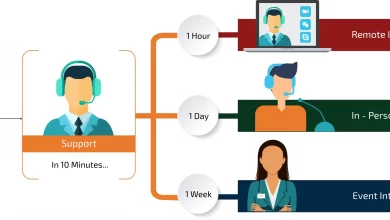Apology Letter Format With Expert Examples

Writing an Apology Letter Format for a mistake or misconduct could be the first step toward regaining the recipient’s dignity and the relationship’s respect and trust.
What is an apology letter?
When we were students, most of us would have written at least a letter to the principal apologizing for being late for class or missing an exam.
When you get down to write an apology letter, one of the obstacles you will have is deciding what words to use. You must recognize the trouble that your actions have caused and express genuine regret for what you have done. It can be difficult to make people understand how sorry you are. Offer sure you don’t make any excuses in order to do so, even if what happened wasn’t totally due to what you did or didn’t do.
Letter writing is something that we all have to do at some point in our life for various reasons. Apology letters, in particular, are critical in every situation since they aid in the repair of strained relationships while also serving as documentary evidence. Taking responsibility for your actions and ensuring that a situation like this does not arise again is a difficult task. People around you, on the other hand, will admire you for having the bravery to own up to your mistakes and make an effort to correct them.
Apology Letter Samples
Wondering how to start your apology letter and how long it should be? Here are some apology letter samples for you.
When to write an apology letter
When you’ve caused or contributed to misconduct or a mistake that has harmed another person, an apology letter might be helpful.
Click Here For Information About – Email Writing Format
You might wish to write a letter to a friend, family member, or spouse whom you care about but have offended or taken for granted, for example. Apology letters are also important when other relationships, such as those at work, have been harmed. You might want to write an apology letter if you made a mistake at work or if you failed to credit a coworker.
How to write an apology letter
Writing an apology letter begins with the apology itself, but before you begin, make sure you are calm and clear-headed.
Allow yourself enough time to evaluate your own feelings as well as the situation in order to comprehend the recipient’s viewpoint. Include the elements listed below in your letter when you’re ready to apologize.
-
Apologize unconditionally
“I’m sorry for…” or “I apologize for…” should be written at the start of your apology letter, followed by the specifics of your remorse. Expressing contrition right away demonstrates humility and awareness of the impact you’ve had on the other person.
-
Acknowledge the impact
After that, consider the impact of your actions on the recipient, a group, or a bigger scenario. Accepting responsibility for how you affected others shows that you appreciate their pain, disappointment, or upset. This is an important step because it confirms their emotions, making them feel acknowledged and noticed.
After that, consider the impact of your actions on the recipient, a group, or a bigger scenario. Accepting responsibility for how you affected others shows that you appreciate their pain, disappointment, or upset. This is an important step because it confirms their emotions, making them feel acknowledged and noticed.
-
Atone for the wrongdoing
Express your willingness to make apologies in this section of an apology letter. Make suggestions for how you plan to change your behavior in the future. Avoid making statements like “Tell me what I can do to make this right,” which places the onus of finding a solution on the recipient.
Instead, put in the mental effort by bringing your own answers to show that you’re genuinely interested in learning and helping others.
-
Offer reassurance
Reiterate your intention to rebuild together as a result of this experience. Also, tell them that you have learned from your mistake.
When you’ve finished drafting the apology letter, make sure it’s brief and truthful. It should also show that you understand and sympathize with the recipient’s situation.
Keep in mind that writing an apology letter does not guarantee that the other person will forgive you. It’s the first step toward regaining lost trust in a relationship that means a lot to you.
Examples of a short apology letter
Sample apology letter to a manager
Dear Mr. Mendoza,
During our video call with our client yesterday, I apologize for my disrespectful tone. After further reflection, I realise that not only did I present myself in an unprofessional manner, but I also created tension in the meeting, which disturbed its productivity. I see that I’ve put the team and the organization in a difficult position.
I’ve privately apologized to the members of my team who were present for placing them in an uncomfortable situation. I’m devoted to improving my performance in high-pressure circumstances and studying conflict-resolution techniques to help me speak in accordance with our company’s standards. I regret profusely my error and will, of course, assume responsibility for my conduct.
Sample apology letter to a friend
Dear Karis,
I’m truly sorry for the rash remarks I made about your decision to work as a freelancer. I truly regret making those because they were both judgmental and unpleasant.
You put your trust in me when you told me about your aspirations to change careers, and I betrayed that trust. I put my own concerns onto you instead of being a supportive friend. That was a blunder on my part, and it’s unforgivable.
After more reflection, I discovered that I had repeatedly cut you off when you attempted to update me on your professional shift. Moving forward, I pledge to treat you with respect by listening with an open mind and heart.
I really apologize for the snarky remarks—you didn’t deserve it, and our friendship means the world to me. When we see each other again, I’d like to continue our talk regarding your plans.
What are a few tips for writing an apology letter?
Focus on the recipient’s sentiments and experience when writing a meaningful apology letter. Avoid using the letter to mistakenly justify yourself and your point of view. This can be accomplished by writing a clear and concise apology for the specific infraction, as well as acknowledging your role in the circumstance. Then, explain how you’ll prevent repeating old mistakes in the future.




